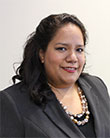[gview file=”http://www.sgvblaw.com/wp-content/uploads/2015/07/08-2015.pdf” force=1]
Recent Take Nothing
The Applicant, a 48-year-old man, was temporarily working for a door manufacturer at the time of his claimed injury. The Applicant claimed to have sustained a specific injury to his back, head, arms, upper extremities, chest, neck, and spine on October 30, 2013, while lifting a pressboard. This claim was timely denied based on discrepancies between the applicant’s statements regarding the date of injury and the date of first treatment (first treatment reported to be before the date of injury), as well as the employer witness statements that the applicant failed to report any injury prior to his termination/ending of his assignment on Nov 4, 2013.
Subpoenaed records confirmed that the Applicant sought medical treatment on November 2; however, his complaints on that date were solely related to a cold. No orthopedic injuries or complaints were listed in the medical record. The first treatment record listing any orthopedic complaints was from Nov 8, after the assignment had ended.
The Applicant did obtain a medical-legal report based on the denied claim, but gave the QME a false/inaccurate history stating that he had never had prior injuries or complaints to his back. He has more than 10 prior injury claims, many of which he has litigated at the WCAB.
Trial was held on June 22, 2015, at which we submitted prior decisions and opinions of the WCAB in which injury was found for some claims and not found in others; the medical report from November 2 showing non-orthopedic complaints; and an employer witness who testified consistent with his earlier statement that no injury was reported prior to the applicant’s assignment ending. The Applicant submitted treatment records obtained after his termination and the QME report containing the inaccurate history given by him. The finding of prior injuries to the various body parts further highlighted the inaccuracy of the QME report & the trial testimony for the injuries that were not found underscored the Applicant’s prior complaints.
Judge Sadosky found the employer witness to be more credible than the applicant; she specifically found the QME report to be based on a false/inaccurate history and indicated that the record did not reflect any treatment for orthopedic injury complaints prior to termination, and as such, the affirmative “post termination” defense under Legal Code 3600(a)(10) was successful. It was found that the Applicant did not sustain injury arising out of and in the course of employment. It was ordered by the ALJ that the Applicant take nothing.
Dismissed Petition for New & Further Disability
The Applicant, a 23-year-old male who was working as a farm laborer, suffered an industrial injury to his back and psyche on August 17, 2009. After the parties conducted discovery, the matter was settled via Stipulations with Request for Award (stips) on March 18, 2013 at 39% permanent disability & a further need for medical care.
On August 14, 2014, the Applicant filed a skeletal Petition for New and Further Disability. The Applicant did not specifically identify any new medical evidence supporting his claim for further disability. On April 23, 2015, a Mandatory Settlement Conference (MSC) was held. By the time of the MSC, the applicant had not appeared for a medical/legal evaluation to assess new and further disability. The Defendants were able to close discovery and set the matter for trial.
Trial was held on June 17, 2015 at which time the Applicant could only offer a treating doctor report as evidence of his new and further disability. Both the Applicant & his wife testified that he was generally worse off than he was at the time of the stips. These statements were not adequate evidence, as disability requires expert medical opinion, and the information was ultimately dismissed.
After the trial was held, Judge Gregory Cleveland issued a Findings and Order on July 8, 2015, ruling that applicant had not presented any medical evidence of new and further disability and, as such, dismissed applicant’s Petition.
MARICELA PICAZO
EDUCATION
MARICELA PICAZO obtained her Bachelor of Arts in Sociology from the University of California, Berkeley. She received her Juris Doctor from Santa Clara University, School of Law in 2003 and was admitted to the California State Bar later that year. During her time at Santa Clara University, Ms. Picazo was a member of the Student Admissions committee where she reviewed and analyzed applications for Law School candidates.
BACKGROUND
Ms. Picazo began her legal career as a Legal Intern for the San Francisco Office of the District Attorney where she conducted legal research and writing for motion hearings and trials in addition to assisting with overall case preparation. She later on became a Certified Legal Intern for District Attorney’s Office in the Juvenile Division specializing in legal research, drafting legal memoranda of points and authorities and trial briefs, and case preparation. As a Certified Legal Intern she also assisted with the in motion calendar, which included the presentation of oral arguments.
While waiting for bar results, Ms. Picazo worked as a Law Clerk at a firm in San Francisco where she gained experience in discovery review and claim analysis. She also assisted attorneys with case research, preparation for depositions, hearings and trial and the negotiation of lien settlements.
Ms. Picazo has exclusively practiced Workers’ Compensation Law since she passed the California Bar in 2003. For the first 11 years of her career, Ms. Picazo worked in-house for a large insurance company where she handled complex files for their national accounts. She is well versed in all phases of litigation, appearing at court proceedings and negotiating settlement agreements.
Ms. Picazo has worked for Samuelsen, Gonzalez, Valenzuela and Brown since 2015, where she has continued to aggressively handle files, always with an eye toward early resolution. Absent early resolution she creates plans of action to move the file quickly through the process of discovery, negotiations and trial if necessary.
Ms. Picazo is fluent in Spanish.
Samuelsen, Gonzalez, Valenzuela and Brown is pleased to have Ms. Picazo as an Attorney in our San Francisco Office.

